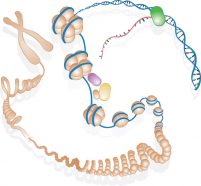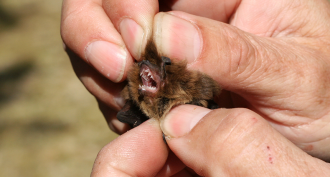Health & Medicine
-
 Health & Medicine
Health & MedicineHealthier mice, through X-rays
In sickly mice, small doses of radiation helped while vitamins harmed.
-
 Health & Medicine
Health & MedicineMagnets that kill cancer cells
Researchers devise a way to use magnets to make cells self-destruct.
-
 Health & Medicine
Health & MedicineOf fish and brain health
Moms-to-be who eat a diet rich in the right fish may pass along benefits to their children
-

-
 Brain
BrainThe teenage brain
Adolescence triggers brain — and behavioral — changes that few kids or adults understand.
-
 Health & Medicine
Health & MedicineThe rest of your DNA
Surprise: Scientists find most of human DNA molecule carries out important functions.
-

-
 Animals
AnimalsMonkeys’ mistake detector
Specific brain cells in macaques respond to fellow animal’s error.
By Roberta Kwok -
 Microbes
MicrobesSurprising rabies resistance
Amazon villagers survive deadly disease carried by vampire bats.
-
 Health & Medicine
Health & MedicineBye-bye, egg allergy
Eating tiny amounts of eggs helps some children overcome their egg allergy.
-
 Health & Medicine
Health & MedicineTomatoes’ tasteless green gene
The tomatoes your great-grandparents ate probably tasted little like the ones you eat today. The fruit used to have more flavor. A lot more flavor. In fact, tomatoes “were once so flavorful that you could take one in your hand and eat it straight away just like we regularly eat apples or peaches,” according to plant scientist Alan Bennett. He belongs to a team of international scientists who now think they know one reason why the fruit has lost so much flavor. Although some unripe tomatoes have a dark green patch near the stem, farmers prefer that their unripe tomatoes are the same shade of green all over. The consistent coloring makes it easier for them to know when the fruit should be picked.
By Roberta Kwok -
 Health & Medicine
Health & MedicineKids with ‘adult’ problems
Nationwide survey shows that children are headed toward serious health problems related to excess weight.